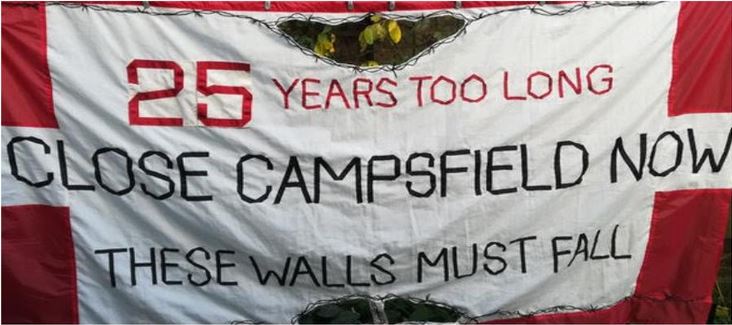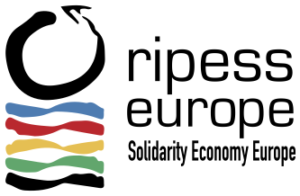The Solidarity Economy Association joins fellow Oxford-based organisations Asylum Welcome and the Campaign to Close Campsfield & End All Immigration Detention in welcoming the Government’s decision to close Campsfield House Immigration Removal Centre in Oxfordshire, as part of the Home Office’s response to the Stephen Shaw review. We also welcome the Government’s commitment to reducing the number of people detained in the UK under immigration powers by 40%. You can read the official announcement here.
Members of SEA will mark the 25th anniversary of the opening of Campsfield next week by attending a special event at Oxford Town Hall, where we’ll join other people who have been involved inside and outside Campsfield in resisting detention to share our stories and talk about where next. A demo has also been organised at Campsfield on Saturday 24 November – see the Campaign’s website for more details.
SEA supports the following statement, issued by Bill MacKeith, joint organiser of the Campaign to Close Campsfield & End All Immigration Detention:
“The announcement that Campsfield is to close is long overdue. We think soberly of all the harm done, the lives damaged, and those lost – 18-year-old Kurd Ramazan Kamluca in June 2005 and Moldovan Ianos Dragotan in August 2011 – at Campsfield over the past twenty-five years.
“The name of our campaign is Campaign to Close Campsfield and End All Immigration Detention. With Campsfield next May, four detention centres will have closed in four years. The number of people in detention is currently down some 20 per cent from the peak in 2015.
“But the misery and injustice of immigration detention continue at Yarl’s Wood, Colnbrook and Harmondsworth, Brook and Tinsley, Morton Hall, and Dungavel. These too have to go. We shall work for that.
SEA’s vision is a just and sustainable world, and we believe that to create that, we need a transformation away from capitalism towards an economy that embodies environmental and social justice, diversity and pluralism, co-operation, self-management and ecological sustainability – a solidarity economy. The solidarity economy is made up of a broad range of initiatives that share a set of values, and they have an important relationship with social movements that also share these values, like the campaign to end all immigration detention. Social movements like this call out the gross inequalities in our society and encourage us to resist them, and solidarity economy initiatives focus on creating alternatives and building an economy that serves everyone.




Leave A Comment